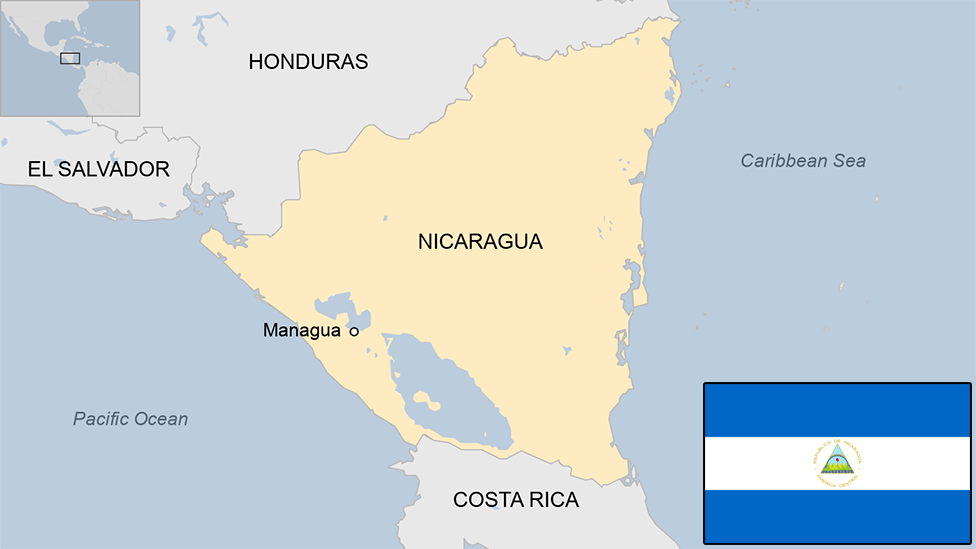Nicaragua: Ortega allowed to run for third successive term
- Published
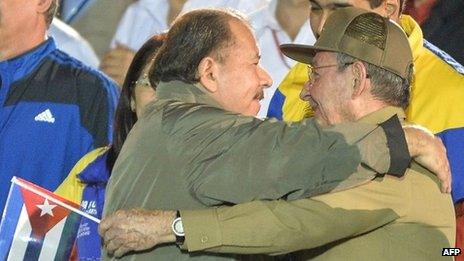
Ortega (left) was welcomed by Cuban President Raul Castro, who is hosting a summit of Latin American and Caribbean leaders in Havana
The Nicaraguan National Assembly has approved changes to the constitution that would allow President Daniel Ortega to run for a third successive term in 2016.
The bill scraps limits to the number of terms Nicaraguan presidents can serve.
The opposition says the changes are a threat to democracy in the impoverished Central American nation.
Mr Ortega's Sandinista Party argues that Nicaragua needs long-term stability to deal with its problems.
Nicaragua is one of the poorest countries in the region. Its main export is being threatened by coffee rust, a fungus affecting plantations across Central America.
"This constitution is not the solution for our problems - poverty or coffee rust - but it allows us to move forward," said the Sandinista leader at the assembly, Edwin Castro.
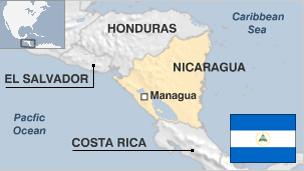
The constitutional changes were approved by 64 votes to 25. One independent lawmaker and 63 Sandinistas voted in favour; only three members of the assembly missed the vote.
The National Assembly had approved the bill on a first vote on 10 December.
The reform also scraps the current rule, which says that the winning candidate needs to receive at least 35% of the vote to be appointed president.
'Ortega forever'
Opposition legislator Maria Eugenia Sequeira, from the right-wing Independent Liberal Party, said the reforms "were designed to serve the interests of the current president."
"It is more of the same in the history of Nicaragua," she added.
Mr Ortega, 68, is a former left-wing guerrilla who led a successful revolution against the dictatorship of the Somoza family, who ruled Nicaragua for four decades.
The Cuban-inspired Sandinistas seized power in 1979.
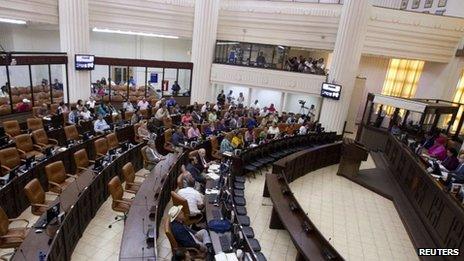
Many opposition legislators left the assembly during the debate in protest at the imminent approval of the constitutional amendments
Daniel Ortega headed the revolutionary committee that ruled the country until 1984. He was then elected president and served a term from 1985 to 1990.
In power, the Sandinistas redistributed property and made huge progress in the spheres of health and education.
However, their pro-Cuban orientation alarmed the United States, which launched a sustained campaign of embargo and armed subversion.
The party lost elections in the 1990s, but Mr Ortega returned to power in January 2007, after a successful election campaign.
Controversially, he gained in the Supreme Court the right to run again in 2011.
He has now been given the National Assembly's clearance to take part in the next vote and potentially serve his fourth term as president.
"We do not need a Somoza, sorry, an Ortega forever," opposition legislator Alberto Lacayo commented ironically during Tuesday's debate.
- Published10 December 2013
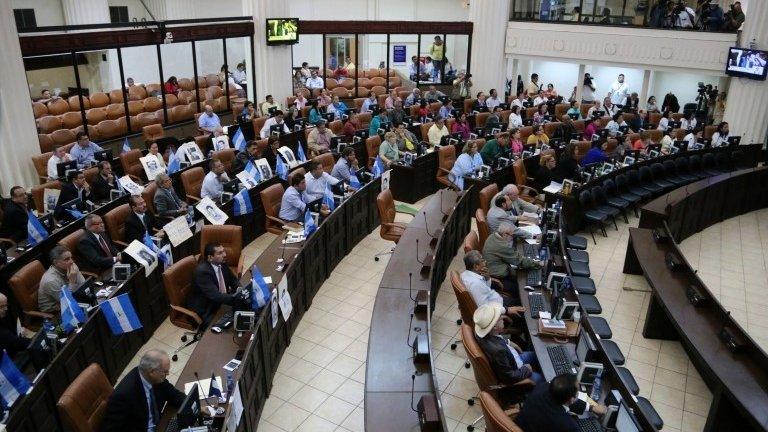
- Published5 January 2014
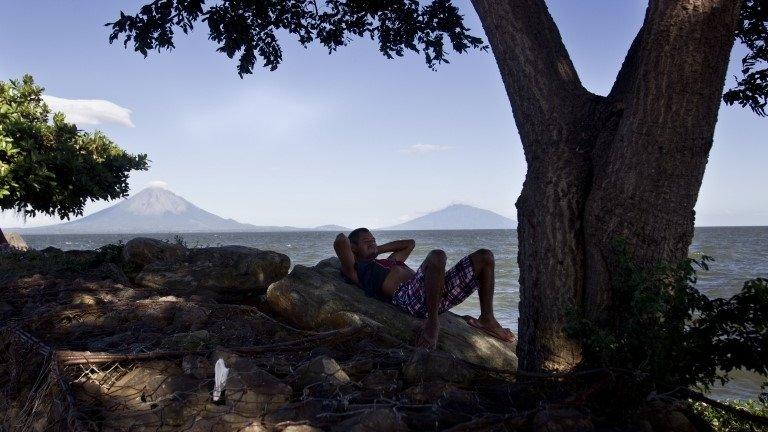
- Published10 January 2022
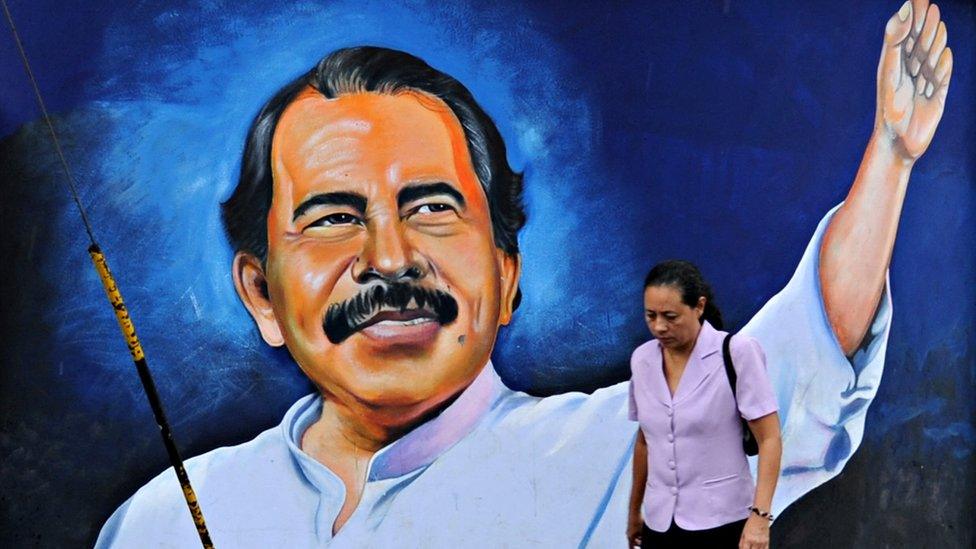
- Published31 December 2024
